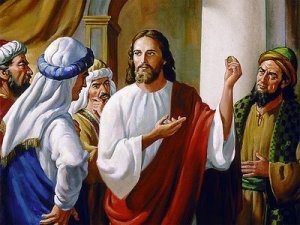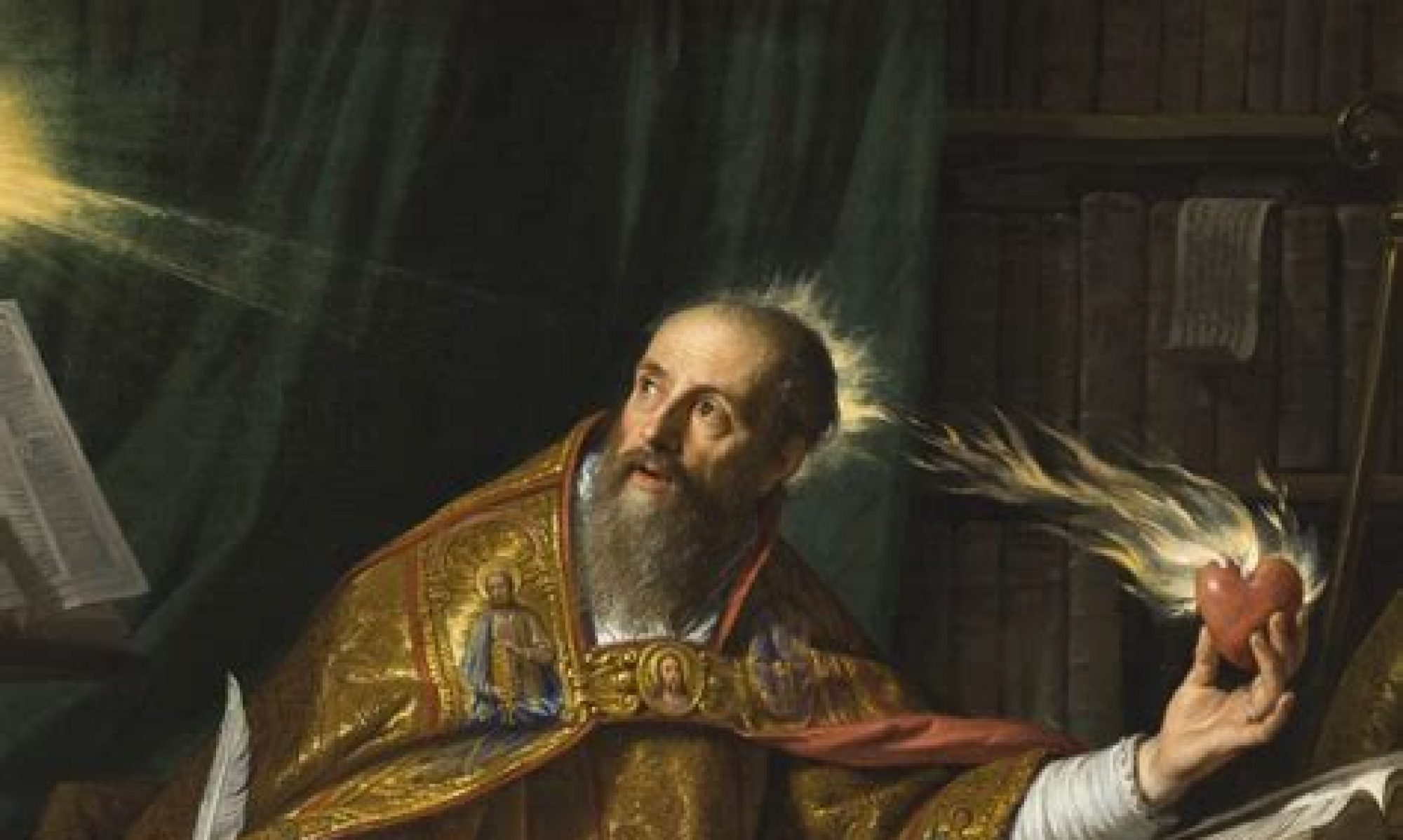- 2 Maccabees 7:1-2, 9-14
- Psalms 17:1, 5-6, 8, 15
- 2 Thessalonians 2:16-3:5
- Luke 20:27-38 pr Luke 20:27, 34-38
The Diocese of Reno, spearheaded by the Bishop, Priests and facilitators representing each parish, will gather together on November 17, 2022, to discuss how we would implement in the entire diocese, the process to study together the meaning of the Mass. This would start from a parish base small group discussion which would create the opportunity for a deeper understanding of the Eucharist, promote communion with God, and increase the knowledge of the Sacrament of the Holy Eucharist, as the summit and source of our lives as Catholics. It is expected that this process will result in an increase of profound love and devotion to the Eucharist.
Today is the 32nd Sunday in Ordinary Time. The Holy Mass is a sacrament of the real presence of God. As Catholics, we adhere to the fact that our celebration today is to be one and in union with God thru this sacrament. Thus, we are happy to recite the responsorial psalm, “Lord, when your glory appears, my joy will be full.” This longing is not remote; it is happening right now with the Lord appearing thru the Liturgy of the Word and in the Liturgy of the Holy Eucharist.
Today, our careful reading of the scriptural passages is an opportunity to savor the sweetness of His words and spend time to digest its message which should not remain in our intellect but in our hearts to challenge us to pay attention.
The over-all theme of the three readings points to death and resurrection. The first reading from the Book of Maccabees narrates the story of seven brothers and their mother who are arrested and tortured for their faith in God. They have lived the laws and customs as a Jewish family. However, the family resisted the domination of King Antichus IV who wanted them to worship the Greek god of all gods. The king and his commanders witnessed how the seven brothers were tortured without fear. They were witnesses of being faithful Jews believing in the true God and, despite the ongoing torture, they recited prayers of hope as they suffered and died. They have forsaken earthly life and chosen life to come with God of their ancestors as their future. They challenge the King’s authority and his own eternal destiny for they believe that they will rise and live after the terror and death. One of the brothers being tortured expresses his abiding faith by exclaiming: “It is my choice to die at the hands of men with the hope God gives of being raised up by him” (2 Mac 7:14). St. Paul, in today’s second reading, calls on the Thessalonians and us that we must be delivered from perverse and wicked people for not having faith in the living God. It is only the Lord who will strengthen and guard us from the evil one.
In today’s gospel, St. Luke focuses on the Sadducees who deny there is a resurrection. Maybe some of us are not open to accept faith in the Lord, who promises resurrection after our death. Let us journey together to understand this passage:
First, let us be honest about ourselves and ask, what is the purpose of life? If there is no resurrection after death, then we are just like fallen leaves during this time of autumn. Leaves fall and get dry and what remains is a barren tree. We believe though that there is hope our garden will be beautiful again when spring comes. This is simply the message of nature about life’s purpose. It is in God that we trust, and the very foundation of life is love. Therefore, our death on earth is truly related to the promise of Christ’s resurrection.
Second, Jesus confronted the Sadducees regarding their wrong teaching. The Sadducees thought they had found an opportunity to trap Jesus by their foolish argument. Try to contemplate how Jesus was able to answer them directly. “The children of this age marry and remarry, but those who are deemed worthy to attain to the coming age and to the resurrection of the dead neither marry nor are given in marriage.” This is a very clear response that in talking about the future life with God, our resurrection completely changes our own perspective.
Third, the end of the gospel has these compelling words; “He is not the God of the dead, but of the living, for to him we are all alive.” Maybe our view of life has been dominated by our material concerns and limited to the idea of this physical world we live in; therefore, we have that difficulty to accept the teaching of Jesus.
Thus, having difficulty to accept the teaching of the “Resurrection”, we have conflicts between the present life and the “after-life,” which we need to address. What must we do here during our earthly life to be part of the resurrection? We must be open to seek spiritual guidance, get into prayer, meditation, reflection and fully embrace the Spirit of Enlightenment.
God bless you.
Fr. Arlon, osa
El dictado del corazón: Trigésima segunda semana del tiempo ordinario, año C
- 2 Macabeos 7:1-2, 9-14
- Salmos 17:1, 5-6, 8, 15
- 2 Tesalonicenses 2:16–3:5
- Lucas 20:27-38 o Lucas 20:27, 34-38
La Diócesis de Reno, encabezada por el obispo, los sacerdotes y los facilitadores que representan a cada parroquia, se reunirán el 17 de noviembre de 2022 para discutir cómo implementaríamos en toda la diócesis el proceso para estudiar juntos el significado de la Misa a partir de una base parroquial. Discusión en pequeños grupos que crea la oportunidad de una comprensión más profunda de la Eucaristía, para promover la comunión con Dios y aumentar el conocimiento del Sacramento de la Sagrada Eucaristía, como cumbre y fuente de nuestra vida como católicos. El proceso esperará resultados de un aumento de devoción y un amor profundo a la Eucaristía.
Hoy es el Trigésimo Segundo Domingo del Tiempo Ordinario. La Santa Misa es un sacramento de la presencia real de Dios. Como católicos, nos adherimos al hecho de que nuestra celebración debe ser una y en unión con Dios a través de este sacramento. Por eso, nos alegramos de recitar el salmo responsorial: “Señor, cuando aparezca tu gloria, mi gozo será completo”. Este anhelo no es remoto, pero está ocurriendo ahora mismo que el Señor se aparece a través de la Liturgia de la Palabra y en la liturgia de la Sagrada Eucaristía.
Hoy, nuestra lectura, cuidadosa de los pasajes de las Escrituras, es una oportunidad para saborear la dulzura de la palabra de Dios y dedicar tiempo a digerir su mensaje que no debe permanecer en nuestro intelecto sino en nuestro corazón, para desafiarnos a prestar más atención.
El tema general de las treslecturas apunta a la muerte y la resurrección. La primera lectura del Libro de los Macabeos narra la historia de siete hermanos y su madre que son arrestados y torturados por su fe en Dios. Han vivido las leyes y costumbres como una familia judía. Sin embargo, la familia se resistió al rey dominante Antichus IV que quería que adoraran al dios griego de todos los dioses. El rey y sus comandantes presenciaron cómo los siete hermanos fueron torturados sin miedo. Fueron testigos de ser judíos fieles que creían en el Dios verdadero, a pesar de la tortura continua, recitaron oraciones de esperanza mientras sufren y mueren. Han abandonado la vida terrenal y eligen la vida para ir con el Dios de sus antepasados. Desafían la autoridad del Rey y su propio destino eterno porque creen que se levantarán y vivirán después del dolor y la muerte. Uno de los hermanos torturados expresa su fe exclamando: “Vale la pena morir a manos de los hombres, cuando se tiene la firme esperanza de que Dios nos resucitará. (2 Mac 7:14). San Pablo en la segunda lectura de hoy llama a los tesalonicenses y a nosotros a que debemos ser librados de las personas perversas y malvadas por no tener fe en el Dios vivo. Solo en el Señor nos fortalecerá y nos guardará del maligno.
En el evangelio de hoy, San Lucas se enfoca en los saduceos que niegan que haya una resurrección. Quizás algunos de nosotros no estemos abiertos a aceptar la fe en el Señor, quien promete la resurrección después de nuestra muerte. Caminemos juntos para comprender este pasaje:
Primero, seamos honestos con nosotros mismos y preguntémonos, ¿cuál es el propósito de la vida? Si no hay resurrección después de la muerte, entonces solo somos vida y hojas caídas durante esta época de otoño. Hojas secas y lo que queda es un árbol estéril. Pero creemos que hay esperanza de que nuestro jardín vuelva a ser hermoso cuando llegue la primavera. Este es simplemente el mensaje de la naturaleza sobre el propósito de la vida. Es en Dios en quien confiamos, y el fundamento mismo de la vida es el amor. Por tanto, nuestra muerte en la tierra está verdaderamente relacionada con la promesa de la resurrección de Cristo.
En segundo lugar, Jesús confrontó a los saduceos con respecto a sus enseñanzas incorrectas. Los saduceos pensaron que habían encontrado una oportunidad para atrapar a Jesús con su argumento. Pero trata de contemplar lo que Jesús es capaz de responderles directamente. “Los hijos de este siglo se casan y se vuelven a casar, pero aquellos que son considerados dignos de alcanzar el siglo venidero y la resurrección de los muertos no se casan ni se dan en matrimonio.” Esta es una respuesta muy clara de que hablar de la vida futura en Dios, nuestra resurrección, cambia completamente nuestra propia perspectiva.
Tercero, el final del evangelio tiene estas palabras convincentes; “Él no es Dios de muertos, sino de vivos, porque para él todos estamos vivos. Tal vez nuestra visión de la vida ha estado dominada por nuestras preocupaciones materiales y limitada a la idea de este mundo físico en el que vivimos; por lo tanto, tenemos esa dificultad para aceptar la enseñanza de Jesús.
Así, teniendo dificultad para aceptar la enseñanza de la “Resurrección”, tenemos conflictos entre la vida presente y la “vida después de la muerte” que debemos abordar. ¿Qué debemos hacer aquí durante nuestra vida terrenal para ser parte de la resurrección? Debemos estar abiertos a buscar guía espiritual, entrar en oración, meditación, reflexión y abrazar completamente el Espíritu para que nos ilumine.
Dios te bendiga.
Padre Arlón, osa


